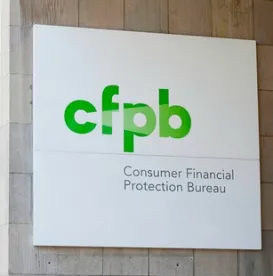On March 22, the CFPB issued Compliance Bulletin 2022-05 regarding potentially illegal practices related to consumer reviews. The guidance states that consumer reviews impact company revenue and help consumers choose between financial providers, which can in turn “incentivize dishonest market participants to attempt to manipulate the review process, rather than compete based on the value of their services, which can frustrate a competitive marketplace.”
The guidance begins by noting that form contracts used to restrict consumer reviews by imposing a monetary or other penalties for publishing negative comments regarding the provider’s services or products are harmful to consumers and “void from the inception of such contract.” Citing to the Bureau’s authority to prohibit “unfair, deceptive, or abusive act or practices” (UDAAPs), the guidance states that invoking void or unenforceable contract provisions can also be “deceptive”: “Consumers can be expected to read the language to mean what it says: that they are restricted in their ability to provide consumer reviews. But that is not the case, since the provision is void under applicable law.”
The CFPB also plans to apply its similar “unfairness” principles to financial intuitions and service providers that use contractual restrictions to restrict consumer reviews. Such conduct “can unfairly harm the many other consumers who rely upon reviews when deciding what products and services to purchase.”
The guidance also notes that companies can engage in UDAAPs by manipulating consumers’ comprehension of consumer reviews by, for example: (i) instructing employees to leave reviews of its products on a third-party website, and also to “dislike” negative reviews left by real customers; and (ii) failing to approve or publish hundreds of thousands lower-starred, more negative reviews while only posting four- and five-star reviews to the company website.
Putting it into Practice: This bulletin is the CFPB’s latest of many recently published guidance documents that generally indicate areas in which the Bureau is prepared to engage (we recently discussed past CFPB guidance in previous Consumer Finance and FinTech blog posts here, here, here, and here). The Bureau has made it clear that it intends to use its authorities to hold the violators accountable if it identifies any UDAAPs in the consumer reviews of consumer financial products and services.
While reviewing and developing best practices based on this guidance, companies should be mindful of the following:
-
Along with the CFPB, companies will likely have to contend with the FTC’s efforts to mitigate fake reviews and related fraud across the digital economy.
-
Companies should review their current contract provisions to ensure all void or unenforceable provisions are in compliance with all applicable consumer protection laws. Note that CFPB examiners have found unenforceable contract provisions to be deceptive regardless of whether the provision is ultimately enforced.
-
Similarly, companies may wish to review all consumer-facing documents and practices – in particular, note that attempting to pressure a consumer to remove a posted negative review by invoking a void restriction on consumer reviews could be deceptive.
-
While not discussed in this bulletin, companies may wish to review and augment their legitimate and legal response protocols to address negative reviews as part of their complaint monitoring policies and procedures.




 />i
/>i
